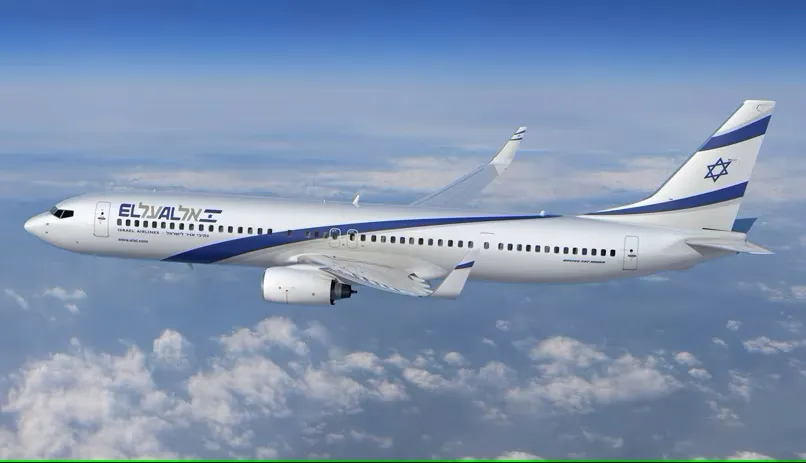
El Al Allegedly Refused Fuel In Turkey
Jul 01, 2024

El Al, the Israeli national airline, reportedly faced a significant issue in Turkey when it was allegedly denied fuel for its flights. This situation arose amid heightened tensions in the region, prompting speculation about the implications for airline operations and international relations. The refusal to provide fuel could reflect broader geopolitical dynamics, as well as the complexities of operating in a country where diplomatic ties might be strained. Consequently, this incident raises questions about the logistical challenges airlines face in volatile environments and the potential impact on passenger travel and airline schedules.
In recent news, El Al, Israel's national airline, has found itself embroiled in controversy, allegedly refusing fuel in Turkey. This incident has raised questions about operational protocols and the geopolitical ramifications of airline operations in sensitive regions. The situation sheds light on the broader implications for international aviation and the importance of strategic partnerships in fuel supply.
The Allegations: What Happened?
Reports indicate that El Al faced challenges in securing fuel while on the ground in Turkey, prompting speculation about the underlying reasons for this refusal. Allegations suggest that political tensions between Israel and Turkey may have played a significant role in this incident. As geopolitical dynamics evolve, airlines must navigate complex relationships that can impact their operations across international borders.
The Impact on El Al's Operations
The refusal of fuel is not just a logistical issue; it can significantly impact flight schedules, passenger experiences, and overall operational efficiency. For El Al, a major international carrier, maintaining a reliable fuel supply is crucial for its operations. Delays caused by fuel shortages can lead to missed connections, dissatisfied customers, and a tarnished reputation.
Fuel Supply Chain: Importance of Strategic Partnerships
The incident highlights the importance of a robust fuel supply chain for airlines. Establishing strong partnerships with fuel suppliers is essential for ensuring operational continuity. Airlines often rely on a network of suppliers to secure fuel at various airports around the world. When political tensions arise, these relationships can be strained, leading to disruptions in service.
Geopolitical Factors Affecting Airlines
Airlines operate in a complex landscape where geopolitical factors can influence their operations. For El Al, the historically fraught relationship between Israel and Turkey may have led to this fuel supply issue. Understanding these dynamics is crucial for airlines as they navigate international routes and partnerships.
Potential Consequences for El Al
If the allegations are confirmed, El Al could face several repercussions. Operational delays can lead to financial losses and damage to the airline's reputation. Furthermore, if the incident is perceived as a broader issue related to Israeli-Turkish relations, it could impact passenger confidence and demand for flights to and from Turkey.
Chart: The Impact of Fuel Supply on Airline Operations
| Factor | Impact |
|---|---|
| Fuel Availability | Directly affects flight schedules and operational efficiency |
| Political Relations | Can lead to disruptions in fuel supply agreements |
| Passenger Confidence | Operational delays can diminish trust in the airline |
| Financial Losses | Delays can result in significant revenue losses |
Future Outlook for El Al
As El Al navigates this challenging situation, the airline will need to reassess its fuel supply strategies and partnerships. This incident serves as a reminder of the importance of maintaining strong relationships with fuel suppliers, especially in regions where political tensions can arise unexpectedly. The airline may also consider diversifying its fuel supply sources to mitigate the risk of future disruptions.
Conclusion: Learning from the Incident
The allegations surrounding El Al's fuel refusal in Turkey underscore the critical role that geopolitical factors play in airline operations. As the aviation industry continues to evolve, airlines must be agile and proactive in managing their fuel supply chains. By prioritizing strong partnerships and understanding the geopolitical landscape, airlines like El Al can better navigate challenges and ensure operational reliability. The incident serves as a cautionary tale for the entire aviation sector, emphasizing the need for resilience in the face of geopolitical uncertainties.
In summary, El Al's alleged refusal of fuel in Turkey highlights the intricate web of relationships and factors that influence airline operations. As the situation develops, it will be essential for stakeholders to keep a close eye on how geopolitical dynamics shape the future of international aviation.
Related Articles

Explore Thailand: The Best Islands to Visit for Paradise, Adventure, and Relaxation

The Ultimate Guide to the Best Islands in Thailand for Your Next Getaway

Do babies need passports? How to get a passport for a newborn

How to get a U.S. passport fast: here’s how to expedite the process

What is Mobile Passport Control: 5 reasons why you should use it

SENTRI vs. Global Entry: A detailed guide

Do you need a passport to go to the Bahamas? Let’s find out

Do you need a passport to go to Mexico? A detailed guide

Do you need a passport to go to Canada? We got the answer

Do You Need a Passport for a Cruise: An Essential Travel Guide

Booster Seat Requirements: All the Rules to Follow in Your Rental Car

What Are the World’s Most Powerful Passports, and How Does Yours Rank?

How to Take a Passport Photo at Home: A Helpful Guide

You've got to have heart! Southwest's new livery

Your opinion: Should water be free on low cost carriers?

Young women bolder than guys as solo travellers
